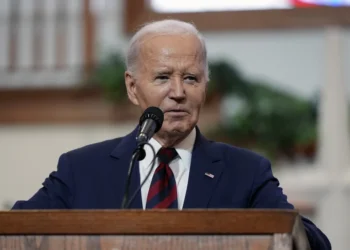Why is National Public Radio going to war with Donald Trump? If, as NPR claims, it only gets 1% of its annual funding from the federal government, then why go to all the trouble of fighting to keep it?
The answer to that question is two-fold. First, NPR relies on government funding more than it admits. Losing millions in taxpayer dollars every year would be felt. Second, and more significantly, is that NPR is fighting to preserve the lie that it is a trustworthy and non-biased news organization.
Following Trump’s recent order directing the Corporation for Public Broadcasting to freeze all funding to NPR and PBS, which equates to $500 million annually, due to their blatant political bias in news coverage, NPR responded by filing a lawsuit against the Trump administration.
In its suit, NPR alleges that Trump’s order is “textbook retaliation” and “that millions of Americans across the country rely on [NPR] for vital news and information.” NPR CEO Katherine Maher explained, “It is evident from the president’s executive order, as well as statements released by the White House and prior statements by the president that we are being punished for our editorial choices.”
She neglected to mention that at least one of those editorial choices helped elect Joe Biden in 2020.
NPR’s decision to sue is not done out of political interest, but “as a matter of necessity and principle,” Maher further asserted. “All of our rights that we enjoy in this democracy flow from the First Amendment: freedom of speech, association, freedom of the press.” Painting NPR’s actions as an altruistic stance for freedom of the press, she adds, “We have to defend our editorial integrity and the integrity of those rights.”
In attempting to make its case that the Trump administration’s refusal to provide taxpayer dollars to the nonprofit media outlet is “viewpoint-based discrimination” and therefore a violation of the First Amendment, NPR has taken a strange position.
Using a rather twisted logic, NPR asserts that Trump violated NPR’s Fifth Amendment right to due process, and then violated its First Amendment right to freedom of speech.
The problem with that argument is obvious: Trump’s order does not stop NPR from existing. It does not prevent NPR from reporting. It doesn’t stop NPR from raising money. What Trump’s order does is stop taxpayer funding to NPR. As the U.S. Supreme Court noted in 2007 in Davenport v. Washington, “It is well established that the government can make content-based distinctions when it subsidizes speech.”
The keyword here is “subsidizes.” When the federal government hands out funding, it always comes with strings attached. That is part of the agreement when states and other organizations agree to take federal funding.
Furthermore, the Supreme Court has also stated that the “refusal to fund protected activity, without more, cannot be equated with the imposition of a ‘penalty’ on that activity.”
Should NPR’s logic be applied to the Second Amendment, for example, then every American citizen in good standing could demand that the federal government not only provide funding for them to purchase a firearm, but also fund ammunition purchases so that they can use that firearm.
As noted above, NPR’s aim here is to fight against the accurate claim that it is a politically biased news media outlet. NPR does not want to be known as the MSNBC of radio, but for all intents and purposes, that is what the Leftmedia outlet is. This is why Maher is attempting to frame NPR’s lawsuit as a fight for “everyone’s” First Amendment rights.

















